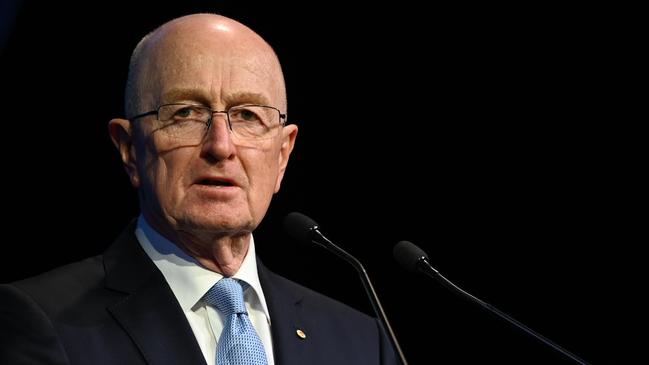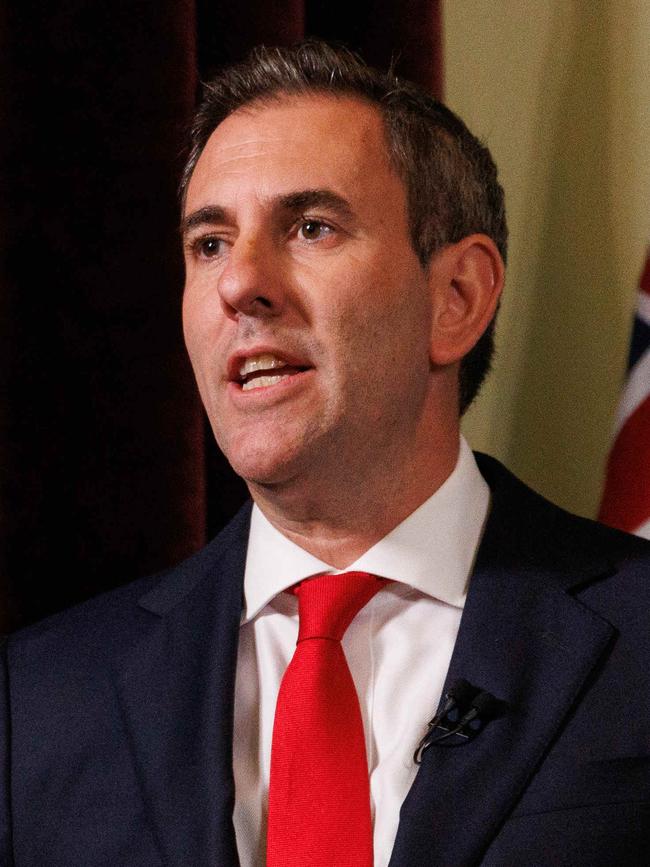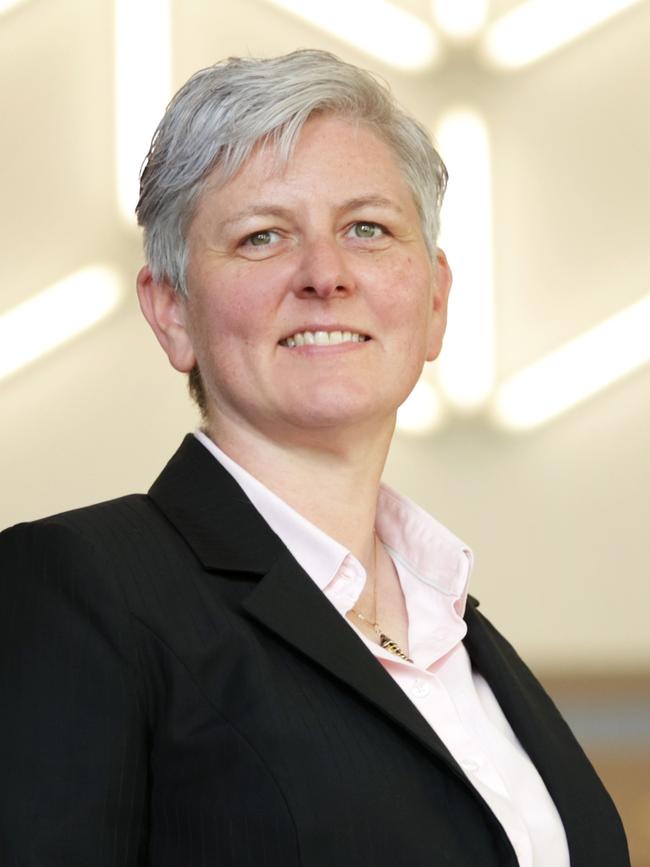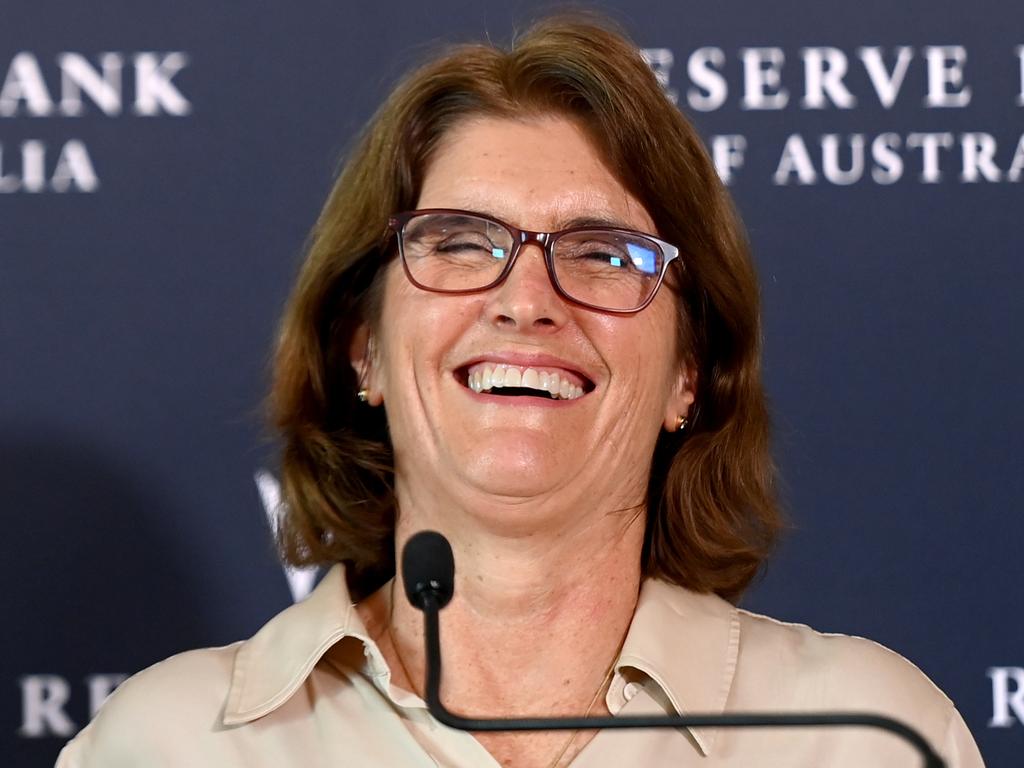Ex-RBA governor Glenn Stevens warns path to low inflation not yet ‘secure’
Former Reserve Bank governor Glenn Stevens says the nation’s path back to low inflation is ‘not yet’ secure, ahead of a key RBA board meeting.

Former Reserve Bank governor Glenn Stevens says the nation’s path back to low inflation is “not yet” secure, ahead of a key RBA board meeting which economists say could reveal growing concerns about the persistence of price pressures and add to the expectations for Jim Chalmers to cut spending in the May 14 federal budget.
Analysts do not expect the central bank will deliver what would be a shock interest rate hike on Tuesday. They believe there will be a more cautious and potentially “hawkish” tone from governor Michele Bullock following an unexpectedly hot consumer price report for the first quarter of 2024.
With financial markets now pricing in a chance of a rate hike in the coming six months, trades are betting rate cuts won’t come until well after the next election – a major blow for Labor’s re-election prospects, as well as for households struggling to pay soaring mortgage costs amid intense cost of living pressures.
After the Treasurer this week said the financial market and analysts had “overreacted” to the recent bad inflationary news, Mr Stevens, who now chairs investment bank Macquarie, said consumer price growth was heading in the right direction, but there remained work to do.
“What we really need to see is (that) low inflation is secure. We’re on the path back there, it’s been going the right direction, but I’d say low inflation is probably not yet quite secure,” he said. “And when it is secure, I think that will give a lot more certainty to the interest rate outlook and markets.”
Geopolitical tensions remained a risk, as well as sizeable government deficits around the world – particularly in the US – that needed to be funded, he said.

The RBA board meeting on Monday and Tuesday could throw a last-minute spanner in the works for Dr Chalmers’ third budget, as any upgraded inflation forecasts and greater worry about taming price pressures would heap pressure on Labor to do more to rein in spending.
Westpac chief economist Luci Ellis said she still expected rates to go down, but that “there is a state of the world in which the RBA would need to raise rates”.
“Consider a scenario where services inflation fails to decline further, the federal budget later this month is more expansionary than expected, and the Fair Work Commission hands down a decision for an increase in the minimum wage not much below last year’s outsized result, even though inflation is much lower one year on,” Dr Ellis said.

“None of these outcomes seems likely given the atmospherics, but it is understandable that policymakers might want to see the actual results, and a bit more progress on inflation, before even thinking about cutting rates.”
Macroeconomics Advisory chief economist Stephen Anthony said Labor’s failure to address the structural spending in the budget was “not making the RBA’s job any easier”.
“The budget papers have no fiscal strategy target that talks about balancing the budget over the cycle – that is a very strong indicator that you are unanchored in what you are doing,” Dr Anthony said.
Dr Anthony, a former senior official at Treasury and the Department of Finance, estimated the federal structural deficit had blown out to 3 per cent of GDP, or about $80bn.
“They play games in the out years so the numbers (on the structural deficit) always seem to improve, but that doesn’t make sense without discretionary policy tightening. It does look like the position is deteriorating, and if and when the terms of trade ever normalises, then we are obviously in a world of pain and in a sea of red ink.”
Treasury in December revealed a relatively aggressive forecast for inflation, saying it would drop to 2.75 per cent by the middle of next year, against the RBA’s prediction for a 3.1 per cent. But the budget may be forced to adopt a less optimistic outlook, particularly if the central bank upgrades the inflation outlook for 2025.
ANZ head of Australian economics Adam Boyton said Ms Bullock had to recognise that inflation would come in higher than anticipated this year, and potentially upgrade the RBA forecast from 3.2 per cent by December, to 3.4 per cent but leave their longer-term predictions untouched.





To join the conversation, please log in. Don't have an account? Register
Join the conversation, you are commenting as Logout